2022.gads ir iezīmējis jaunu periodu Eiropas un pasaules vēsturē. Karš, kuru izraisīja Krievijas federācija pret Ukrainu, atklāja dziļas atšķirības taisnīga kara izpratnē. Daudzas Austrumu puslodes zemes izrāda atbalstu Krievijai ne tikai pragmatisku apsvērumu vadītas, vai arī novecojušu postkolonikālo ideoloģiju iespaidā. Viņu pozīcija sakņojas starptautisko attiecību filozofiskā tradīcijā, kas ir atšķirīga no Rietumu uzskatiem.
Starptautisko attiecību pētījumi kopš Pirmā pasaules kara līdz mūsdienām ir Rietumu akadēmiskās pasaules pārstāvju, tādu, kā E.H. Karra, (E.H. Carr), H. Morgentau (Hans Morgenthau), K.Volca (Kenneth Waltz), R. Koheina (Robert Keohane) darbs. Starptautisko attiecību pētniecībai ir pienācis laiks izpētīt Austrumu starptautisko attiecību teorijas, lai rastu jaunu skatījumu uz globālo politiku. Šāda pieeja izraisa arī kritiku, kas apgalvo, ka politiskā teorija, kas radīta ārpus Rietumu robežām, nevar piedāvāt neko nozīmīgu. Āzijas pētniecība, kā akadēmiska nozare šādam viedoklim nepiekrīt. Austrumos formulētas starptautisko attiecību teorijas var sniegt unikālu perspektīvu un teorētisko pamatu, uz kā būvēt labāku globālās politikas izpratni. Āzijas kara likumi starptautiskajās attiecībās Āzijā, tiks salīdzināti ar Rietumu kara tradīcijām. Katra Austrumu filozofiskā skola (Ķīnā, Indijā), piedāvā skatījumu, kas atšķiras no Rietumu kara tradīcijas. Mūsu nolūks ir izvērtēt divu civilizāciju līdzības un atšķirības un analizēt to filozofiskos pamatus.
Lai nostiprinātu šo viedokli, LU Āzijas studiju nodaļa 81. konferences ietvaros fokusēsies uz kara teoriju Austrumos.
The year 2022 marked a new period in European and world history. The war waged by the Russian Federation against Ukraine revealed profound differences in the understanding of just war. Many countries of the Eastern Hemisphere show support for Russia not only guided by pragmatic considerations, or under the influence of outdated post-colonial ideologies. Their position is rooted in a philosophical tradition of international relations that is different from Western views.
International relations studies from the First World War to the present day are the work of representatives of the Western academic world, such as the works of E.H. Carr, Hans Morgenthau, Kenneth Waltz, Robert Keohane. It is time for international relations research to explore Eastern theories of international relations to find a new perspective on global politics. Such an approach also provokes criticism, which claims that political theory created outside the borders of the West cannot offer anything meaningful. Asian studies, as an academic field, does not share this view. International relations theories formulated in the East can provide a unique perspective and theoretical foundation on which to build a better understanding of global politics. Asian laws of war in international relations in Asia will be compared with Western traditions of war. Each Eastern philosophical school (in China, India) offers a perspective that differs from the Western tradition of war. Our intention is to evaluate the similarities and differences between the two civilizations and to analyze their philosophical foundations.
In order to strengthen this opinion, the Department of Asian Studies of LU will focus on the theory of war in the East within the framework of the University’s 81st conference.

